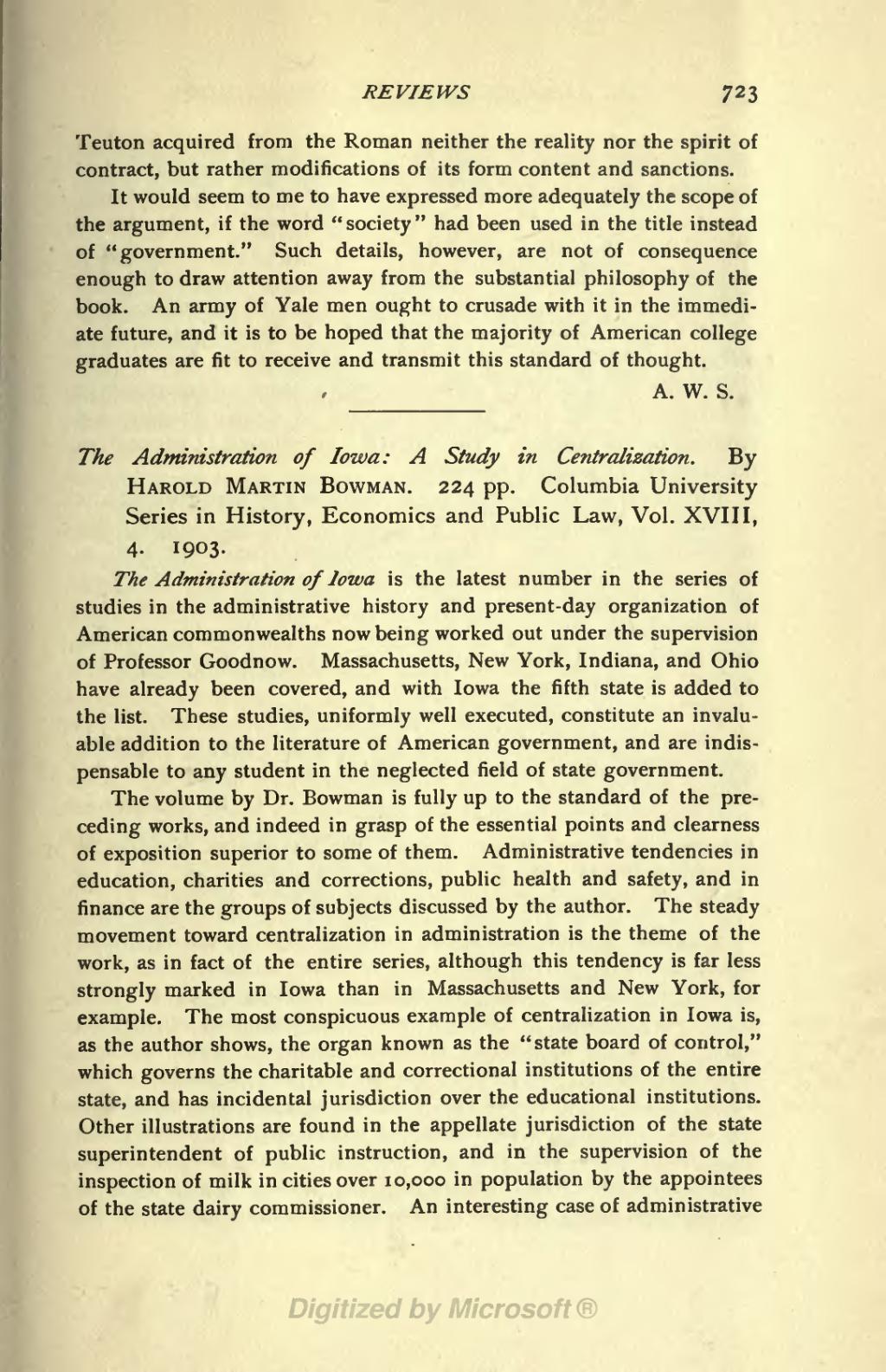REVIEWS 723
Teuton acquired from the Roman neither the reality nor the spirit of contract, but rather modifications of its form content and sanctions.
It would seem to me to have expressed more adequately the scope of the argument, if the word "society" had been used in the title instead of "government." Such details, however, are not of consequence enough to draw attention away from the substantial philosophy of the book. An army of Yale men ought to crusade with it in the immedi- ate future, and it is to be hoped that the majority of American college graduates are fit to receive and transmit this standard of thought.
A. W. S.
The Administration of Iowa: A Study in Centralization. By HAROLD MARTIN BOWMAN. 224 pp. Columbia University Series in History, Economics and Public Law, Vol. XVIII,
4- 1903-
The Administration of Iowa is the latest number in the series of studies in the administrative history and present-day organization of American commonwealths now being worked out under the supervision of Professor Goodnow. Massachusetts, New York, Indiana, and Ohio have already been covered, and with Iowa the fifth state is added to the list. These studies, uniformly well executed, constitute an invalu- able addition to the literature of American government, and are indis- pensable to any student in the neglected field of state government.
The volume by Dr. Bowman is fully up to the standard of the pre- ceding works, and indeed in grasp of the essential points and clearness of exposition superior to some of them. Administrative tendencies in education, charities and corrections, public health and safety, and in finance are the groups of subjects discussed by the author. The steady movement toward centralization in administration is the theme of the work, as in fact of the entire series, although this tendency is far less strongly marked in Iowa than in Massachusetts and New York, for example. The most conspicuous example of centralization in Iowa is, as the author shows, the organ known as the "state board of control," which governs the charitable and correctional institutions of the entire state, and has incidental jurisdiction over the educational institutions. Other illustrations are found in the appellate jurisdiction of the state superintendent of public instruction, and in the supervision of the inspection of milk in cities over 10,000 in population by the appointees of the state dairy commissioner. An interesting case of administrative
